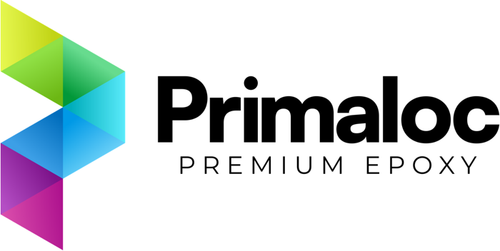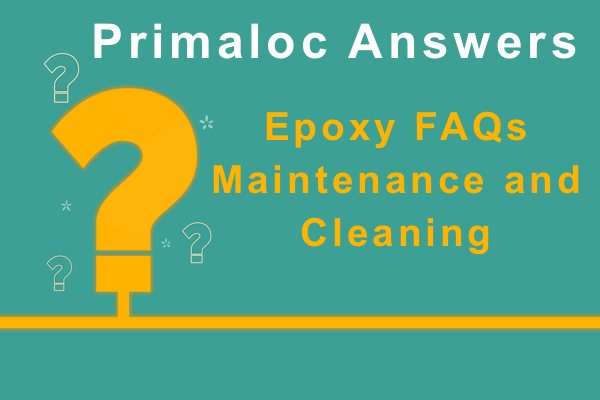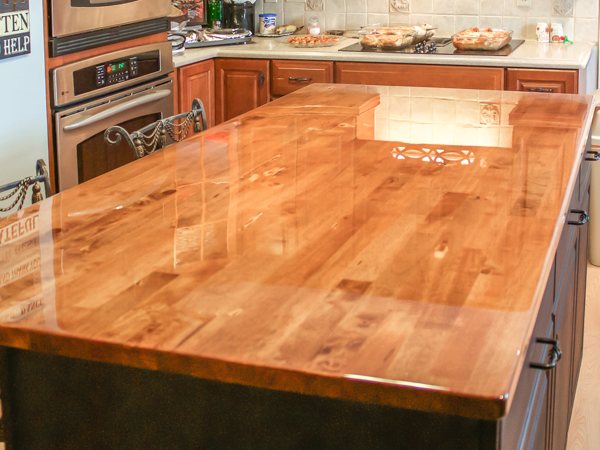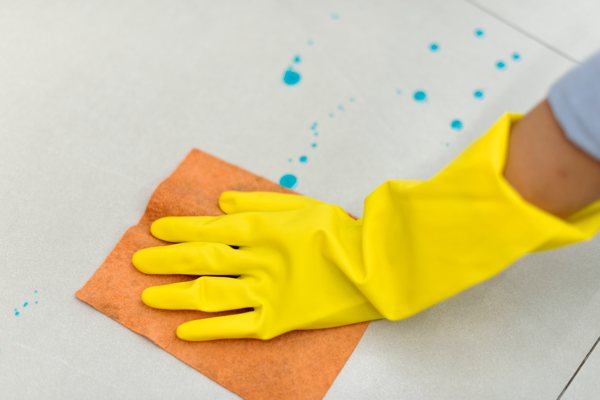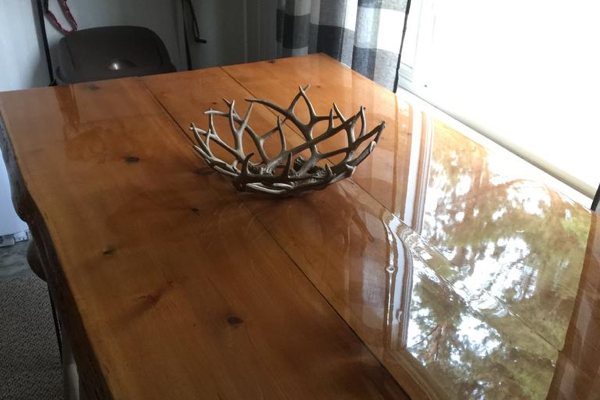When it comes to keeping surfaces clean and well-maintained, epoxy makes it remarkably easy, thanks to its tight, waterproof bond that preserves any underlying substrate materials. Additionally, epoxy benefits from an inherent resilience to many forms of damage, making it an exceptionally low-maintenance choice for finishes on countertops, tables, and other surfaces.
Nevertheless, routine cleaning is still useful, if nothing more than to ensure a sanitary space where spills and stains are bound to occur, particularly on surfaces utilized for dining or food preparation. With that in mind, it's a good idea to learn about which cleaning agents and techniques are best suited for epoxy, enabling you to keep your surfaces clean while also avoiding the few products that aren't suitable for epoxy maintenance.
In this guide, we'll address common inquiries regarding the cleaning and upkeep of epoxy resin surfaces, providing practical advice toward maintaining your epoxy surfaces.
Epoxy Maintenance and Cleaning FAQs
In this FAQ segment, we'll be answering the following questions:
- Is it safe to clean epoxy countertops with Clorox wipes?
- Is Windex an appropriate cleaner for epoxy resin surfaces?
- Which cleaner is recommended for maintaining epoxy bar tops?
- Can vinegar be used to clean epoxy surfaces?
- How does rubbing alcohol affect epoxy resin?
- Are Swiffer cleaning products suitable for use on epoxy surfaces?
- Does epoxy need to be reapplied regularly?
Each of these questions is related to the cleaning and general maintenance of epoxy resin surfaces. Below, we'll answer them in-depth, one by one, starting from the top.
FAQ #1: Is It Safe to Clean Epoxy Countertops with Clorox Wipes?
Yes, you can safely use the current range of Clorox wipes on epoxy surfaces, such as epoxy countertops. This range includes their regular disinfecting wipes, plant-based wipes, and compostable cleaning wipes, all of which are suitable for epoxy because they do not contain harsh solvents or bleach (i.e., the substances you should typically avoid when cleaning epoxy).
For homes with infants or pets prone to licking surfaces, baby wipes are a gentler alternative that can effectively clean without the harsher chemicals found in disinfectant wipes.
For quick sanitization on epoxy surfaces, standard non-bleach disinfectant wipes are an effective choice.
FAQ #2: Is Windex an Appropriate Cleaner for Epoxy Resin Surfaces?
Glass cleaners such as Windex are typically safe and effective for cleaning epoxy resin surfaces. Epoxy can resemble glass in terms of care and maintenance, making glass-specific cleaners a practical choice for upkeep.
This also extends to products containing vinegar as well. Although using concentrated vinegar isn't advised for epoxy due to its acetic acid content, the diluted vinegar found in many glass cleaners should not harm high-quality epoxy resin surfaces.
For cleaning, you can directly spray the cleaner onto the surface or apply it to a cloth before wiping. Continue until the epoxy surface is streak-free and dry.
FAQ #3: Which Cleaner Is Recommended for Maintaining Epoxy Bar Tops?
For initial cleaning, warm soapy water is your best bet to tackle any residues on an epoxy resin surface. It's gentle yet effective for most day-to-day dirt and grime.
When a deeper clean is necessary, particularly for removing tougher residues or streaks, a quality glass cleaner is an excellent choice due to its effectiveness on epoxy, which shares similar cleaning characteristics with glass.
When full sanitization is required—especially in high-contact areas—following up with a disinfectant spray or wipe can ensure the surface is free of germs.
Discover more detailed cleaning recommendations in our comprehensive guide to cleaning epoxy resin surfaces!
FAQ #4: Can Vinegar Be Used to Clean Epoxy Surfaces?
While you can use vinegar on epoxy surfaces, it's important to note that vinegar often contains high levels of acetic acid, which can vary by product.
Frequent use of vinegar, due to its acetic acid content, may gradually soften or deteriorate the epoxy finish, potentially leading to a dulled or "cloudy" appearance. Therefore, we advise against using pure vinegar as a cleaner for epoxy resin surfaces.
Where possible, stick with a multi-surface cleaner that incorporates small amounts of vinegar, and avoid pure vinegar.
FAQ #5: How Does Rubbing Alcohol Affect Epoxy Resin?
Rubbing alcohol can serve as an effective sanitizing agent for epoxy resin surfaces. Using a diluted form—of rubbing alcohol combined with water—will ensure the alcohol doesn't evaporate too soon, allowing sufficient time to disinfect the surface effectively.
Opt for a rubbing alcohol solution that is between 70% to 80% concentration. Simply moisten a cloth with the alcohol and gently wipe the epoxy surface. You'll notice the streaks of moisture disappearing as the alcohol swiftly evaporates.
FAQ #6: Are Swiffer Cleaning Products Suitable for Use on Epoxy Surfaces?
Yes, Swiffer cleaning products are generally suitable for use on epoxy surfaces.
These products are designed to be gentle yet effective on various types of floors and surfaces, making them a good match for the non-porous nature of epoxy finishes. Swiffer wet cloths and dusters can pick up dust and dirt without scratching or damaging the epoxy coating.
For maintaining the shine and cleanliness of your epoxy surface, Swiffer's milder cleaning solutions can be a convenient choice.
FAQ #7: Does Epoxy Need to Be Reapplied Regularly?
In the vast majority of cases, no.
Epoxy resin is known for its long-lasting durability and typically does not require regular reapplication. Once cured, a high-quality epoxy coating can maintain its integrity and appearance for many years without the need for a new coat. The lifespan of an epoxy surface can vary depending on factors such as the amount of foot traffic, exposure to UV light, and general wear and tear—not to mention the quality of the epoxy itself.
In residential settings, a well-applied epoxy countertop can last decades with proper care and maintenance. In commercial or industrial settings, where the coating may endure heavier use, the lifespan may be shorter, but it is still significantly longer than many alternative finishing options.
However, if the epoxy surface does become damaged or shows signs of wear over time, such as scratches, cloudiness, or yellowing (particularly in areas exposed to UV light), it may be beneficial to sand down the top layer and apply a fresh coat to restore its appearance and protective qualities to like-new condition.
Ultimately, while regular reapplication isn't necessary for maintaining an epoxy surface, it's a good idea to take a close look every few years to determine if a new coat seems warranted.
Primaloc Epoxy: Premium Epoxy for Premium Results
When it comes to epoxy resin, Primaloc Epoxy gets the job done. Our epoxy resin is premium-grade, with high performance in every category, including:
- Unmatched Strength: A Primaloc finish won't buckle, even under high pressure.
- Long-Lasting Resilience: Primaloc epoxy lasts for many years with minimal care, and can endure high-traffic environments with ease.
- A Crystal-Clear Coating: With its pristine, transparent appearance, looking at a cured Primaloc coating is like peering through a window.
Epoxy resin can be beautiful, strong, and long-lasting—which is why you shouldn't compromise on quality. With Primaloc Epoxy Resin, you get the ultimate finish in durability and visual appeal.
Protect your surfaces by giving them a rock-solid epoxy finish. Choose strong. Choose reliable. Choose Primaloc.
